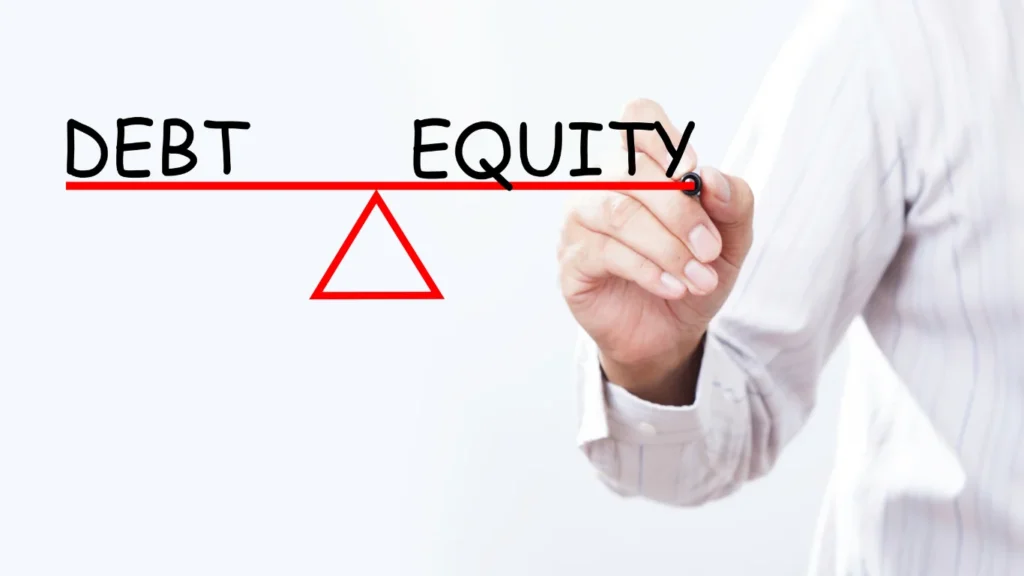Starting and growing a business requires capital. Traditionally, entrepreneurs have relied on banks, angel investors, and venture capitalists to secure funding. However, these avenues can be challenging for new and unproven businesses. Fortunately, the rise of the online era has introduced a new option: equity crowdfunding.
Together, we will explore what equity crowdfunding is, how it works, and the benefits and drawbacks it presents. We will also discuss the regulations surrounding equity crowdfunding and provide tips on how to navigate this fundraising method effectively.
Understanding Equity Crowdfunding
Equity crowdfunding is a fundraising method that enables businesses to seek investments from the general public. Unlike other crowdfunding models, where backers receive rewards or make donations, equity crowdfunding gives investors a share in the company as a return for their financial contribution.
This exchange of equity distinguishes equity crowdfunding from general crowdfunding platforms like Kickstarter. Instead of retaining full ownership of their business or project, founders and creators offer investors a proportional equity stake based on their investment amount.

While equity crowdfunding has been around for years, it was initially limited to accredited investors to ensure that they understood the risks involved. However, in 2015, US regulators declared equity crowdfunding an exception to securities laws, allowing companies to accept investments from non-accredited investors. This decision broadened the pool of potential investors and increased opportunities for businesses.
The Advantages of Equity Crowdfunding
Equity crowdfunding offers several advantages for businesses seeking capital. Let’s explore some of the key benefits:
- Broader Pool of Investors
One of the significant advantages of equity crowdfunding platforms is their ability to attract a more extensive range of prospective investors. Unlike traditional funding sources like venture capital firms or private equity lenders, equity crowdfunding allows businesses to raise money from a diverse group of individual investors. This includes customers, friends, family, and anyone interested in supporting the business.
- Retention of Company Control
When businesses secure investments from angel investors or venture capitalists, they often sacrifice ownership and control over their company. These investors typically require significant stakes and may impose conditions such as board seats or management involvement. In contrast, equity crowdfunding allows founders to retain management control without the need to give board seats to outsiders.
- Potential for Quick Fundraising
Unlike traditional loans or venture capital deals that can take months or even years to finalize, equity crowdfunding campaigns can help businesses raise funds quickly. Online platforms enable backers to share campaigns with their network, increasing the chances of attracting funding within a shorter timeframe.
- Diversification of Capital
By crowdfunding, businesses automatically diversify their sources of capital, reducing their dependence on a single funding source. Suppose one investor decides not to participate in future rounds of fundraising. In that case, there are still many others who may be willing to invest. This diversification mitigates the risk of relying too heavily on a single investor or financing method.
- More Opportunities for Non-Tech Companies
Venture capital firms often prioritize funding early-stage tech companies with high growth potential. This can make it challenging for non-tech businesses with solid growth prospects to secure funding. Equity crowdfunding platforms provide these businesses with an opportunity to access capital and attract investors who may be interested in their unique value proposition.
- Avoidance of Debt and Interest Expenses
Borrowing money to fund a business often means taking on debt and incurring interest expenses. These interest payments can strain a business’s resources, making it harder to achieve profitability. Equity crowdfunding allows businesses to raise capital without the burden of debt and interest payments, providing them with more financial flexibility.

It is important to note that equity crowdfunding has its own challenges and risks despite its significant advantages. Let’s explore some of the disadvantages.
The Disadvantages of Equity Crowdfunding
While equity crowdfunding presents numerous benefits, it’s essential to consider the potential drawbacks. Here are some of the disadvantages to be aware of:
- Limited Support from Experts
When entrepreneurs raise capital through traditional sources like investment banks or angel investors, they often gain access to individuals with expertise and extensive networks. Equity crowdfunding attracts investors from the general public who may need to gain relevant business experience or connections to support the business’s growth.
- Limited Investment Amounts
Equity crowdfunding in the United States has limitations on how much companies can raise and how much individual non-accredited investors can invest. These restrictions are in place to protect less-experienced investors while increasing access to potentially rewarding investments. However, the limitations of equity crowdfunding may restrict the amount of capital a business can raise.

- Challenging Valuation Process
Equity crowdfunding requires businesses to set a valuation for their company, which determines the value of the equity they offer to investors. Setting a valuation can be challenging, as it involves finding the right balance. If a company sets its value too high, investors may be hesitant to invest. Conversely, undervaluing the company may result in a dilution of the founder’s ownership stake.
- Possibility of Missing Funding Goals
When businesses attempt to secure funding through equity crowdfunding campaigns, there is no assurance that they will be successful in their endeavour. In case the campaign fails to meet its funding target, it may not receive any of the money raised, which can be disheartening and have a negative impact on the company. To increase their probability of success, businesses need to set practical funding goals and develop effective marketing strategies.
When businesses need to raise funds, they might want to consider equity crowdfunding as an option. Even though there are some downsides, with planning and proper execution, the benefits can outweigh the risks.
How to Seek Equity Crowdfunding for Your Company
If you’re considering equity crowdfunding for your business, here are six steps to guide you through the process:
- Develop Your Business Plan or Project Pitch
Before launching an equity crowdfunding campaign, it’s essential to develop a compelling business plan or project pitch. This plan should demonstrate market research, financial projections, and the need for funding. Clearly communicate to potential investors why your business or project is worth supporting and how you plan to use the funds raised.

- Work with Experts to Structure an Offering
Suppose you’re planning to raise money through equity crowdfunding. In that case, it’s a good idea to get advice from financial and legal experts. They can help you structure your offering to meet the legal requirements and ensure that your company and offering comply with securities regulations. To start, you need to decide what types of securities you will offer, terms, and the value of your company.
- Sign Up to a Registered Equity Crowdfunding Platform
Choose a registered equity crowdfunding platform that aligns with your business’s needs and goals. Please review their terms, popularity, and unique benefits to find the right platform for your campaign. Some popular platforms include Fundable, StartEngine, and Crowdcube.
- Submit Essential Information
Once you’ve selected a platform, you will need to provide essential information for background checks and compliance purposes. This information may include financial statements, business plans, and forecasts. Be prepared to provide transparent and accurate information to build trust with potential investors.
- Launch, Advertise, and Collect Funds from Your Campaign
After launching your crowdfunding campaign, it’s crucial to promote it to potential investors. Leverage your network, social media, and marketing strategies to raise awareness and attract backers. Engage with investors, answer their questions, and provide updates to keep them informed and engaged.
- Distribute Equity and Execute Your Plans
Once your funding goal is met, you will need to distribute equity to your investors based on their investment amount. Use the capital raised to execute your business plans or project, keeping investors updated on your progress. If your company becomes profitable or is sold, you may consider issuing dividends or other payouts to investors.
FAQs
What percentage do equity crowdfunding platforms take?
Equity crowdfunding platforms charge different fees for their services, depending on the platform. These fees may include a percentage of the funds raised, transaction fees, or equity.
Can equity crowdfunding be used for any type of business?
Equity crowdfunding platforms can be used by various types of businesses. Still, it’s essential to review platform requirements and regulations to ensure eligibility. Different platforms may have specific criteria or preferences for the types of businesses they support.
How long does an equity crowdfunding campaign typically last?
The duration of an equity crowdfunding campaign can vary depending on the platform and the funding goal. Some campaigns may run for a few weeks, while others may extend to several months. It’s essential to set a realistic timeline and continually engage with potential investors throughout the campaign.
Equity crowdfunding supplies a unique opportunity for businesses to raise capital by offering securities to a broad range of investors. It offers advantages such as a broader pool of investors, retention of company control, and the potential for quick fundraising. However, it also comes with risks, including equity dilution and the possibility of business failure.
By following the steps outlined in this guide and considering the pros and cons, businesses can make informed decisions about whether equity crowdfunding is the proper fundraising method for their needs. With careful planning, effective marketing, and transparent communication with investors, equity crowdfunding can be a valuable tool for startups and early-stage companies seeking capital to fuel their growth.






